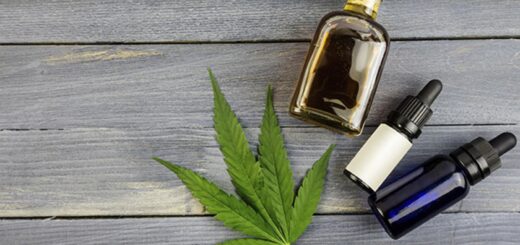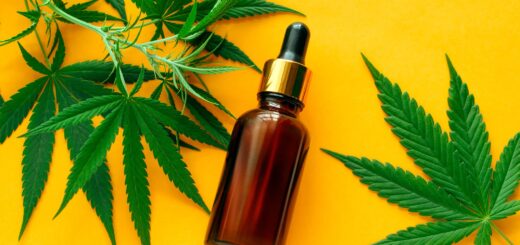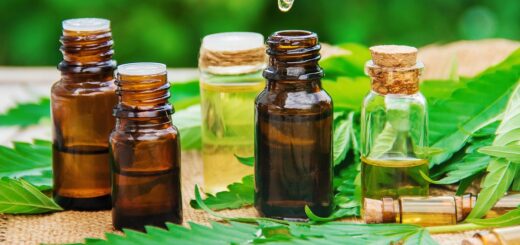The Benefits of Using CBG and CBD Oils
Like THC did years ago, CBD oil is becoming almost synonymous with hemp. People are becoming more aware of CBD, hemp, and the advantages of both thanks to the accessible research and a burgeoning consumer-based CBD oil market.
Despite CBD’s notoriety and extensive research, it isn’t the only cannabinoid extracted from Cannabis sativa. CBD’s effectiveness is enhanced when combined with other cannabinoids, which may come as a surprise to you.
Cannabigerol (CBG) is one such “coupling” hemp chemicals that is getting more and more attention as more and more research gets accessible. Comparison of medical CBD oil and CBG reveals that they share comparable properties. In addition to the benefits that make CBD oil hemp extracts so popular, CBG has its own set of advantages.

First, a brief explanation of the difference between CBD oil and CBG.
Cannabidiol: What Exactly Is It?
In high-quality hemp, cannabidiol (CBD) makes up around 10% of the chemical makeup. It’s not psychoactive, unlike THC, another cannabinoid found in cannabis. In certain cases, CBD oil will have trace levels of THC (up to the legal limit of 0.3 percent), which is why you may see products that contain both. The presence or absence of THC in CBD oil will be clearly labelled on the packaging.
In order to interact with the ECS, CBD molecules bind predominantly with CB2 cannabinoid receptors. Our muscles, immunological cells, skin, and other organs all have these specialised receptors, which are linked to the peripheral nervous system. The demand for the many CBD oil products on the market is a direct result of the body’s innate biological mechanism, which amplifies the oil’s health and wellness advantages.
CBG: what does it stand for?
A second non-psychoactive phyto-cannabinoid is cannabigerol (CBG). These other cannabinoids, including CBD, owe a great deal to this one special hemp molecule.
Commonly referred to as a “mother cannabinoid,” CBG was the first phyto-cannabinoid to be generated from hemp and convert into other cannabinoids.
Cannabigerol acid (CBGa), a 2-carboxylic acid, is the first form of the chemical. Cannabidiolic acid (CBDa), tetrahydrocannabinolic acid (THCa), and cannabichromenic acid are all byproducts of this compound’s breakdown in the maturing hemp plant.
After the transformation, fewer than 1% of the original CBGa remains. All of these chemicals in hemp lose their carboxyl acid during the decarboxylation process, transforming into the familiar cannabinoids like tetrahydrocannabinol (THC), cannabidiol (CBD), cannabidiol (CBC).
The mature hemp plant has very little cannabigerol (CBG), making its extraction significantly more labour intensive than CBD oil. To extract a considerable amount of CBG, growers would need to either harvest hemp before it completely develops or cultivate a very large number of hemp plants.
And because of the scarcity of CBG, studies on this cannabinoid are few. However, CBG, like CBD oil, exerts its effects via binding to the endocannabinoid system’s receptors. CBG, on the other hand, is able to bind to both CB1 and CB2 receptors instead of just one.

Which Has More Advantages: CBD Oil or CBG?
It was said before that the CB2 cannabinoid receptors, which are linked to the peripheral nervous system, are the primary targets of CBD oil. The peripheral nervous system (PNS) connects to the immune system in addition to muscles, limbs, skin, and other biological systems.
CBG binds not just to CB1 receptors but also to CB2 receptors, both of which are located in the CNS (central nervous system), which includes the brain and spinal cord. Instead of trying to decide which advantages are more important than the others, you should find out which cannabinoid meets your needs, focusing the areas of greatest significance to you.
CBD oil and CBG have their advantages. Most CBD oils marketed as broad-spectrum or full-spectrum include both cannabinoids to take advantage of the entourage effect, which describes how the two cannabinoids complement and amplify each other’s effects.
Keep in mind that CBD oil is more readily available for study because it is more typical to isolate CBD from hemp than CBG. That doesn’t imply CBG is useless, but it does mean that evidence supporting its usefulness is harder to come by.
Which is Better for Sleeping: CBG or CBD Oil?
Seventy percent of Australian adults say they aren’t getting enough sleep, despite the known importance of sleep to our well-being. When compared to more traditional approaches, using CBD oil for sleep, especially as part of a soothing nightly ritual, is quickly gaining popularity.
When using CBD oil, do you find yourself feeling sleepy? Theoretically, when dosed appropriately, the answer is no. CBD oil is most effective when used in conjunction with other therapies, such as melatonin. Some CBD oil products, especially those branded as “full-spectrum,” include trace amounts of THC, which may produce drowsiness when used in conjunction with CBD. Consumers seldom report feeling sleepy after using CBD oil products as suggested.
If CBD oil doesn’t put people to sleep, why do people think it does? People have faith in using CBD oil products to aid in maintaining a good, regular sleep pattern because of the oil’s potential to produce a sense of relaxation and peace.
CBD oil sleep aids, which blends the oil with melatonin and other supporting botanicals, may give the sleep support you’re seeking for when taken in conjunction with other measures, such as limiting exposure to light sources in the hour before bed. A combination of melatonin, the body’s natural sleep hormone, and CBD oil can help you unwind before bed.
The judgement is still out on the effects of CBG on sleep because there isn’t much data available regarding CBG specifically. The theory holds that when combined with CBD oil, CBG might exert a synergistic effect, making the combined substance more potent.
Which Is Better for Pain: CBG or CBD Oil?
Almost 40% of respondents said that CBD oil helped with the mild aches and pains they experienced as a result of intense activity. Part of our peripheral nervous system consists of the worked-out muscle groups and joints we use in our everyday workout regimens. CBD oil might be useful since its molecules mostly interact with the CB2 receptors in this system.
CBD oil’s effectiveness in treating muscle and joint pain is enhanced by the fact that it may be used topically and taken orally. Topical CBD oil with other analgesics, such as menthol, can be applied directly to the area of discomfort.
CBD can also be taken orally in the form of tinctures, soft gels, or even gummy candies. Delaying the development of muscular pain after physical activity may be possible by employing these internal techniques on a daily, weekly, or monthly basis.
In many full-spectrum or broad-spectrum CBD oil products, CBG and CBD oil are combined to provide the benefits of both substances. It’s tough to determine if CBD oil or CBG is superior; together, though, they may be more potent.
To know more about where to buy CBD oil in Australia and other CBD oil benefits, you should book a consultation session with a professional from Chronic Therapy today.
More to read: Using CBD Oil for Wisdom Tooth Pain


